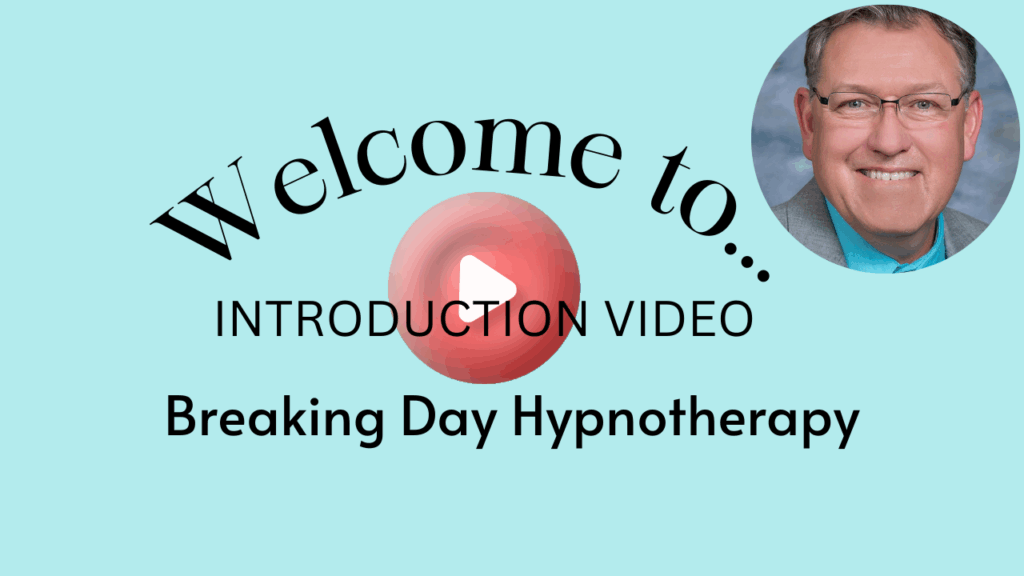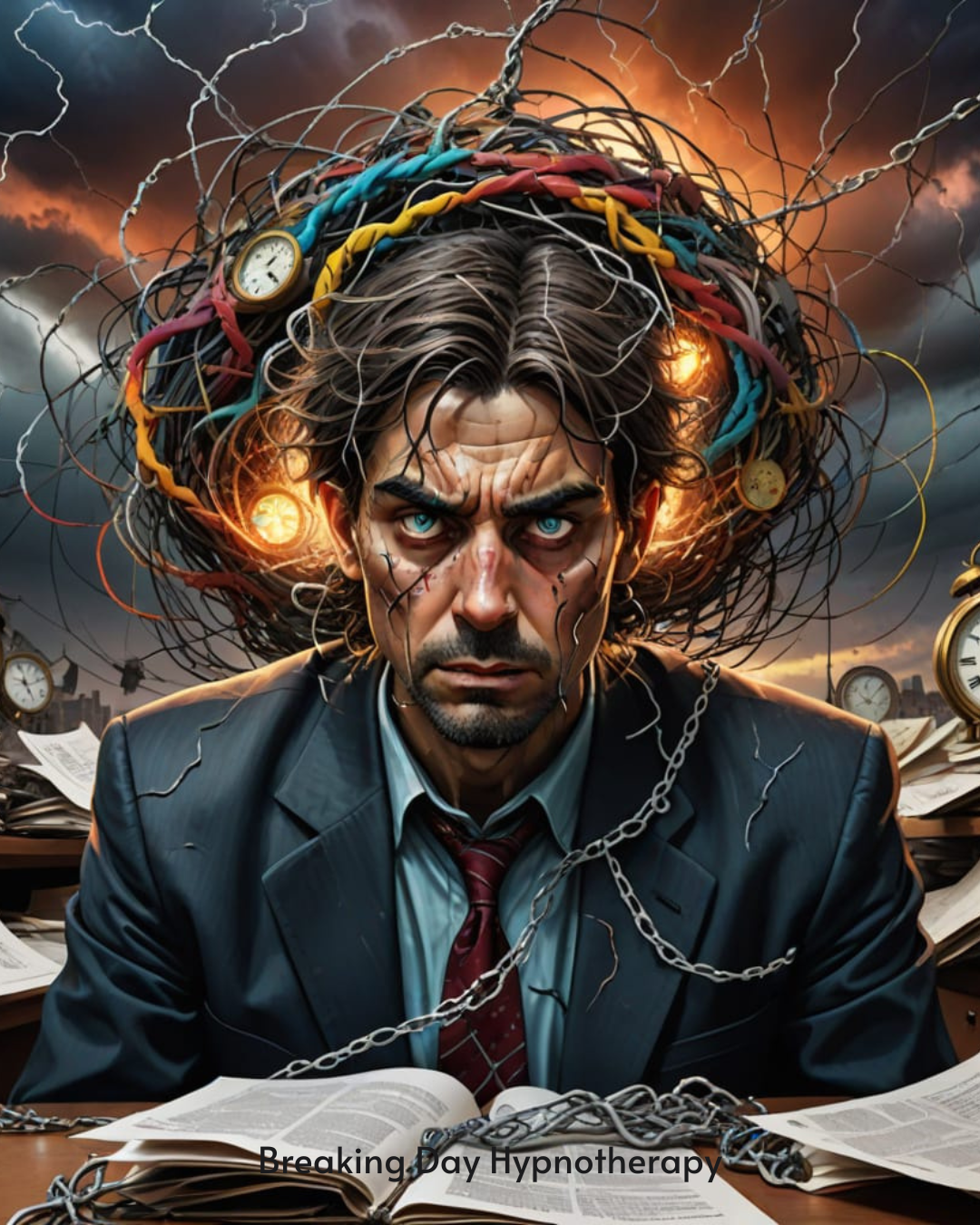
Step Into a Calmer, More Empowered You
(By Art Kuhns — Breaking Day Hypnotherapy)
For many years, I didn’t realize I was living more in my past than in my present.
I used to let old memories define me and in some ways, even haunt me. I was indecisive, anxious, and constantly second-guessing myself. I carried mistakes from years ago as if they were happening right now. I pushed painful experiences so deep inside that I thought I had buried them… but they were still influencing how I spoke, how I moved, how I made choices, and how I felt about myself.
I didn’t know there were ways to release that weight.
I didn’t know the mind and body could actually heal those emotional imprints.
I didn’t know freedom was even possible.
Then, I learned I can release them and heal them.
Oh my goodness, what a relief
It felt like my shoulders dropped for the first time in years.
My breath came easier.
My decisions became clearer.
My confidence slowly returned.
I realized something powerful:
We’re not meant to be defined by our past. We’re meant to learn from it, release it, and step into who we’re becoming.
If you’ve ever felt shaped or limited by your past, please know this:
There are simple, gentle ways to change the emotional imprint of old memories and create genuine inner freedom.
Below are two of the most effective self-guided tools I use personally and teach to my clients. These methods can bring relief, clarity, and empowerment without reliving the past.
Method 1: Mindfulness Reframe
Change the emotional imprint by shifting how the mind holds the memory.
Painful memories often hold their power because of the story we’ve attached to them. Mindfulness Reframing gently brings the memory that is hiding or pushed down, out of hiding, allowing you to clearly see the beliefs it created and how they have been shaping your life. From this place of awareness, you can begin rewriting the old mental script. Letting go of the old version of you and begin shifting into the version of you that YOU want to become. This method blends introspection, conscious reframing, and guided visualization, making it one of the most transformative self-healing tools available.
Mindfulness Reframe | Step-by-Step
1. Journal to flush out the memory.
Let the story, sensations, and emotions flow freely. No filtering, no editing.
2. List the negative thoughts or limiting beliefs connected to the memory.
3. On one side of the paper, write the old thoughts.
On the other side, write a positive statement or the desired outcome, what you wish had been true or what you want now.
4. Enter a mindful meditative state.
Relax your body. Slow your breath.
Imagine watching the “new desired version” of yourself on a large movie screen, as if you’re seated in a theater.
5. Step into the screen.
Walk toward the image and merge with the version of you who already embodies your new belief, new strength, or new emotional state.
6. Become one with this upgraded version of YOU.
What do you see?
How do you breathe?
What do you feel now that you’ve stepped into this new identity?
This single shift, of stepping into the new version of yourself, rewrites the emotional meaning of the past while activating your future potential.
Method 2: Somatic Release
Let the body release what the mind has been holding.
Even when the mind understands something logically, the body may continue carrying the imprint of old experiences. Jaw tightness, tongue pressure, a heavy chest, or a knot in the stomach often appear as physical echoes of emotions we never had the chance to fully process. Somatic Release works by gently dissolving these imprints through awareness, imagery, and intentional energetic softening. As you tune into the body with compassion and presence, the tension begins to unwind, allowing space for comfort, ease, and relief. It is one of the quickest and most effective ways to create real, embodied healing.
Somatic Release | Step-by-Step
1. Identify where the emotion or discomfort shows up in your body.
2. Ask: “If this feeling had a shape, what shape would it be?”
Trust the very first impression.
3. Repeat step 2 for color and size.
Again, Trust the very first impression. The subconscious always answers immediately.
4. Rate the intensity from 1–10, with 10 being most intense.
5. Briefly interrupt the pattern.
Think of something neutral or pleasant…like popcorn:
“Mmm… doesn’t it smell good?”
This resets the emotional circuit.
6. Shift your attention to a part of your body that feels good, neutral, or calm.
Identify its shape and color, following step 2.
7. Close your eyes and imagine moving the ‘good’ shape and color into the area that needs healing. Do this in your mind or with your hands.
8. Visualize the positive sensation transforming the old one.
Imagine dissolving it, softening it, cleansing it, or replacing it.
9. Place your hands over the healing spot and speak your intention, here are some examples:
“Clear and transform.”
“Calm and tranquil.”
“Functioning normally and at peace.”
Or whatever outcome you desire.
10. Place yourself in the future with your healed transformed self.
See yourself living, moving, and behaving as the person who has already healed.
This trains the subconscious to accept the new state as your natural one.
You Don’t Have to Carry the Past Forever
Healing doesn’t require force or reliving trauma.
It requires awareness, gentle redirection, and a willingness to step into who you are becoming.
These two tools, Mindfulness Reframe and Somatic Release, are simple, powerful, and accessible to anyone. They offer a path toward emotional freedom, confidence, and clarity.
And the more often you use them, the more naturally your mind and body begin to release the old and embrace the new.
Your Free Client Handout and Audios
Would you like a printable guide that walks you through both methods in a simple, step-by-step format you can use anytime you need clarity, relief, or emotional reset?
It’s free…
How about a meditation audio that guides you through the process? One for the mindful reframe and another for the somatic release. All you have to do is sit back, hit play and relax.
Both audios are free too.
Just need a name and an email to send it too. Please use this form to receive your free handout and audios.

Hi, I’m Art Kuhns, the founder of Breaking Day Hypnotherapy. As a certified Hypnotherapist trained at the Hypnosis Motivation Institute (HMI), a Mindful Coach and a Reiki Master/Teacher, I specialize in the power of energy. I believe in holistic healing that integrates mind, emotions, body, and spirit for comprehensive wellness. My approach combines mindful-infused hypnotherapy to empower your journey towards ultimate success.
I’m proud to be a member of these associations:
Toastmaster member since 2014 / currently officer of local club
International Certification Board for Clinical Hypnotherapists (ICBCH)
National Association of Transpersonal Hypnotherapist (NATH)





